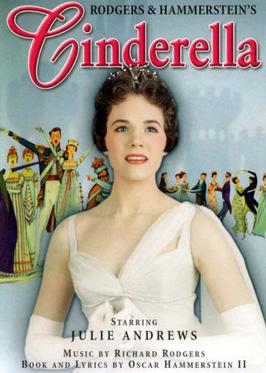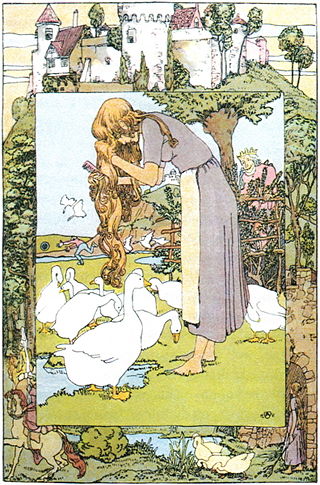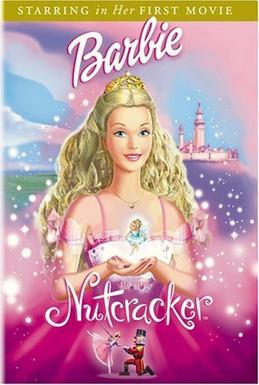Related Research Articles
The Lion in Winter is a 1966 play by James Goldman, depicting the personal and political conflicts of Henry II of England, his wife Eleanor of Aquitaine, their children and their guests during Christmas 1183. It premiered on Broadway at the Ambassador Theatre on March 3, 1966, starring Robert Preston and Rosemary Harris, who won a Tony Award for her portrayal of Eleanor. It was adapted by Goldman into an Academy Award-winning 1968 film of the same name, starring Peter O'Toole and Katharine Hepburn. The play has been produced numerous times, including Broadway and West End revivals.

"Cinderella", or "The Little Glass Slipper", is a folk tale with 69 variants that are told throughout the world. The protagonist is a young girl living in forsaken circumstances who is suddenly blessed by remarkable fortune, with her ascension to the throne via marriage. The story of Rhodopis, recounted by the Greek geographer Strabo sometime between 7 BC and AD 23, about a Greek slave girl who marries the king of Egypt, is usually considered to be the earliest known variant of the Cinderella story.

"Snow White" is a German fairy tale, first written down in the early 19th century. The Brothers Grimm published it in 1812 in the first edition of their collection Grimms' Fairy Tales, numbered as Tale 53. The original German title was Sneewittchen; the modern spelling is Schneewittchen. The Grimms completed their final revision of the story in 1854, which can be found in the 1857 version of Grimms' Fairy Tales.

Paige O'Hara is an American actress, singer, and painter. O'Hara began her career as a Broadway actress in 1975 when she portrayed Della in The Gift of the Magi. In 1991, she made her motion picture debut in Disney's Beauty and the Beast, in which she voiced the film's heroine, Belle. Following the critical and commercial success of Beauty and the Beast, O'Hara reprised her role as Belle in the film's three direct-to-video follow-ups, Beauty and the Beast: The Enchanted Christmas (1997), Belle's Magical World (1998), Belle's Tales of Friendship (1999), and for cameo appearances in Ralph Breaks the Internet (2018) and Once Upon a Studio (2023).

In fairy tales, a fairy godmother is a fairy with magical powers who acts as a mentor or parent to someone, in the role that an actual godparent was expected to play in many societies. In Perrault's "Cinderella", he concludes the tale with the moral that no personal advantages will suffice without proper connections.

Jo Anne Worley is an American actress, comedian, and singer. Her work covers television, films, theater, game shows, talk shows, commercials, and cartoons. Worley is widely known for her work on the comedy-variety show Rowan & Martin's Laugh-In.

Once Upon a Mattress is a musical comedy with music by Mary Rodgers, lyrics by Marshall Barer, and book by Jay Thompson, Dean Fuller, and Marshall Barer. It opened off-Broadway in May 1959, and then moved to Broadway. The play was written as a humorous adaptation of the 1835 Hans Christian Andersen fairy tale "The Princess and the Pea".

Rodgers and Hammerstein's Cinderella is a musical written for television, but later played on stage, with music by Richard Rodgers and a book and lyrics by Oscar Hammerstein II. It is based upon the fairy tale Cinderella, particularly the French version Cendrillon, ou la petite pantoufle de verre, by Charles Perrault. The story concerns a young woman forced into a life of servitude by her cruel stepmother and self-centered stepsisters, who dreams of a better life. With the help of her fairy godmother, Cinderella is transformed into a princess and finds true love with the kingdom's prince.

Sally Ann Howes was an English actress and singer. Her career on screen, stage and television spanned six decades. She is best known for the role of Truly Scrumptious in the 1968 musical film Chitty Chitty Bang Bang. In 1963, she was nominated for a Tony Award for Best Lead Actress in a Musical for her performance in Brigadoon.

"The Goose Girl" is a German fairy tale collected by the Brothers Grimm and first published in Grimm's Fairy Tales in 1815. It is of Aarne-Thompson type 533.

Anika Noni Rose is an American actress. She is best known for voicing Tiana, Disney's first African-American princess, in The Princess and the Frog (2009). She was named a Disney Legend in 2011.

Barbie in the Nutcracker is a 2001 animated fantasy film co-produced by Mainframe Entertainment and Mattel Entertainment, and distributed by Artisan Home Entertainment.
The Brown Bear of Norway is an Irish fairy tale collected by Patrick Kennedy which appeared in his Legendary Fictions of the Irish Celts (1866). It was later included by Andrew Lang in his anthology The Lilac Fairy Book (1910), though Lang misattributed his source as West Highland Tales.

The Iron Stove is a fairy tale collected by the Brothers Grimm, as tale number 127. It is Aarne–Thompson type 425A, "The Animal (Monster) as Bridegroom". Dorothea Viehmann prepared the story for the Grimms' collection.

"The Nutcracker and the Mouse King" is a novella-fairy tale written in 1816 by Prussian author E. T. A. Hoffmann, in which young Marie Stahlbaum's favorite Christmas toy, the Nutcracker, comes alive and, after defeating the evil Mouse King in battle, whisks her away to a magical kingdom populated by dolls. The story was originally published in Berlin in German as part of the collection Kinder-Märchen, Children's Stories, by In der Realschulbuchhandlung. In 1892, the Russian composer Pyotr Ilyich Tchaikovsky and choreographers Marius Petipa and Lev Ivanov turned Alexandre Dumas' adaptation of the story into the ballet The Nutcracker.

Cinderella is a ballet-féerie in three acts, with the choreography of Enrico Cecchetti and Lev Ivanov supervised by Marius Petipa. Music is by Baron Boris Fitinhoff-Schell; the libretto is by Lidia Pashkova and Ivan Vsevolozhsky. It was first presented by the Imperial Ballet on 17 December [O.S. 5 December] 1893 at the Imperial Mariinsky Theatre in St. Petersburg, Russian Empire.

The Nuttiest Nutcracker is a 1999 animated direct-to-video Christmas film loosely based on the 1892 ballet The Nutcracker. The film was directed by Harold Harris and starred the voices of Jim Belushi, Cheech Marin, and Phyllis Diller. This film follows a group of anthropomorphic fruits and vegetables. Their goal is to help the Nutcracker's army get a star to the top of a Christmas tree before midnight and stop a rodent army from destroying Christmas. The film was released on home video by Columbia TriStar Home Video in 1999. The film aired on CBS December 4, 1999, in addition to being shown on cable.

Sleeping Beauty is a 1987 American/Israeli fantasy film, part of the 1980 film series Cannon Movie Tales. It is directed by David Irving and stars Tahnee Welch, Morgan Fairchild, Nicholas Clay and Sylvia Miles. It is a contemporary version of the classic tale of Sleeping Beauty of the Brothers Grimm and Charles Perrault. Like the other Cannon Movie Tales, the film was filmed entirely in Israel.

Flora, Fauna, and Merryweather are the three good fairies in Walt Disney's 1959 film Sleeping Beauty. They are characterized as Princess Aurora's fairy godmothers and guardians, who appear at baby Aurora's christening to present their gifts to her. The three were voiced by Verna Felton, Barbara Jo Allen, and Barbara Luddy, respectively.

The Light Princess is a musical with music and lyrics by Tori Amos and a book by Samuel Adamson based on the Scottish fairy tale of the same name by George MacDonald.
References
- ↑ "The Christmas Princess". The Co-op Theatre Company. Archived from the original on December 21, 2007. Retrieved February 8, 2019.
- ↑ Canterbury, Carie (December 8, 2011). "In the Holiday Spirit". Cañon City Daily Record. Archived from the original on July 22, 2012. Retrieved February 8, 2019.